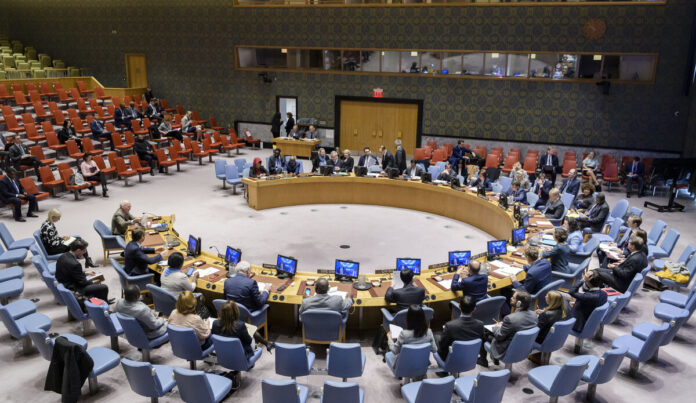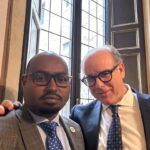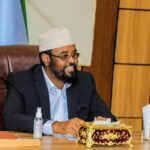The Security Council is scheduled to meet in person in the Security Council chamber for an open briefing, followed by closed consultations, on the situation in Somalia. Special Representative and head of the UN Assistance Mission in Somalia (UNSOM) James Swan and Special Representative of the AU Commission Chairperson for Somalia and head of the AU Assistance Mission for Somalia (AMISOM) Francisco Madeira will brief on the latest political, security and humanitarian developments in the country. They will also brief on the work of UNSOM and AMISOM. The report of the Secretary-General on the situation in Somalia (S/2021/485) was submitted to Council members on 19 May and covers developments from 10 February to 7 May.
During tomorrow’s meeting, Council members are expected to take stock of the turbulent political situation in Somalia. On 27 April, facing intense domestic and international pressure, Somali President Mohamed Abdullahi Mohamed “Farmajo” reversed his 13 April decision to extend his presidential term and the term of the House of the People, Somalia’s lower house, by another two years. Farmajo had justified the move with the need for more time to organise direct (one-person, one-vote) presidential and parliamentary elections, after preparations had stalled for indirect elections in line with the 17 September 2020 Agreement between the federal government and five of its federal member states. The 17 September Agreement stipulates that the country will hold indirect legislative and presidential elections—whereby clan representatives elect members of the House of the People, which in turn elects the president—instead of direct one-person, one-vote elections, due to security and logistical challenges.
Somalia’s Prime Minister, Mohamed Hussein Roble, has stated his readiness to implement the 17 September Agreement. On 20 May, he convened a consultative meeting between the federal government and its member states, which is still ongoing at the time of writing, to discuss various issues related to the elections. All leaders of the federal member states are in attendance. The issues discussed are expected to include disagreements over the composition of the electoral management bodies, the selection of Somaliland representatives, the management of elections in the Gedo region of Jubaland, and the technical modalities for holding the elections.
Security Council members may want to hear from Swan about progress towards the holding of indirect elections, associated timelines and potential UN support for the electoral process, with a view to full implementation of the 17 September Agreement. Given their emphasis on consensus-based solutions to avoid another political stalemate between the federal government and its member states, some Council members may want to learn more about the ongoing consultative meeting on the elections, and about any efforts to increase dialogue and foster an environment of mutual trust between the Somali government and the different regions of the country.
Council members are united in their call for a return to the provisions of the 17 September Agreement, and they are likely to show unified support for the ongoing consultative meeting. However, members may hold different views regarding the role of the Council in facilitating consensus between the federal government and its member states in the matter of the elections. Some may emphasise that this is an internal affair where the Council should tread lightly, while others may maintain that the Council will have to continue to play an active and engaged role in helping Somalia through the political difficulties.
The challenging security and humanitarian situations in Somalia will likely also be a focus of the meeting. The report of the Secretary-General noted a monthly average of 275 security incidents and a total of 260 civilian casualties, including 116 persons killed and 144 wounded, during the reporting period. Al-Shabaab continued to be the main driver of the unstable security environment. The population faces drought in some areas of the country, increasing levels of food insecurity and violence-induced internal displacement.
Council members may wish to learn from Madeira how AMISOM is preparing for the upcoming electoral period and about any progress made towards handing over security responsibilities to the Somali security forces in accordance with the Somalia Transition Plan (STP). Efforts are underway to develop a joint Somalia National Army (SNA)-AMISOM operationalisation plan to fully implement the STP’s provisions. A review of AMISOM’s Concept of Operations (CONOPS) was mandated by the Council in resolution 2568, to be completed and submitted to Council members in August. The financing of security operations may also be of interest, as the Secretary-General’s report draws attention to the depletion by June of the UN Trust Fund in support of SNA forces in joint operations with AMISOM. An independent AU assessment of AMISOM is currently being conducted and is due by the end of this month.
The question of continued financial support to AMISOM has repeatedly been a subject of Council members’ interventions. African members Kenya, Niger and Tunisia, along with Saint Vincent and the Grenadines (the A3 plus one), have frequently argued in favour of financing AMISOM operations through assessed contributions and had requested a reference to such contributions as a possible option for future AMISOM financing in resolution 2568, which reauthorised the mission until the end of this year. The request was not accepted, however.
The regional dynamics of the situation in Somalia will also be of interest to Council members, who may want to hear about future AU involvement in the country. On 22 April, Somalia criticised AU Peace and Security Council discussions on the situation in the country, claiming that Djibouti and Kenya were both attempting to adversely influence the outcome of the meeting. Somalia initially welcomed the appointment by the AU of former Ghanaian President John Dramani Mahama as an AU special envoy assigned to help Somalia’s political stakeholders find a mutually acceptable compromise to the country’s electoral impasse. However, Somalia subsequently withdrew its support for Mahama, indicating that AU engagement was no longer needed after it had renewed its commitment to the 17 September Agreement and that the envoy should be impartial with no prior connections to the region, after having alleged that Mahama had strong links with Council member Kenya.





